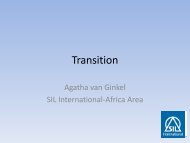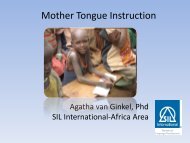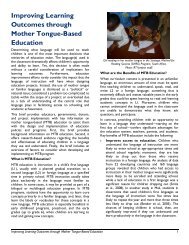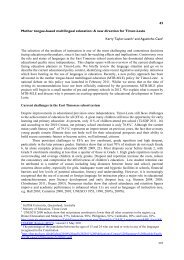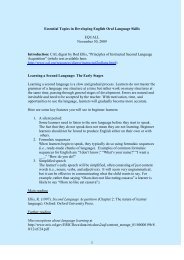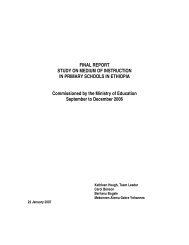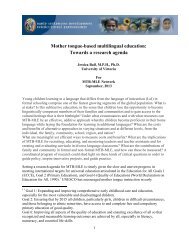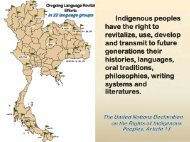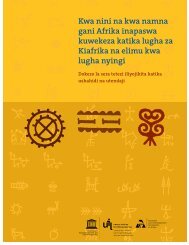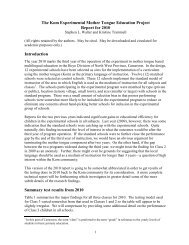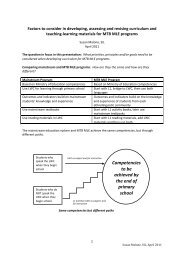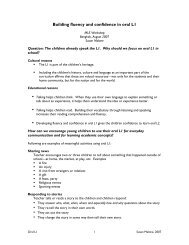Part I.pdf - MTB-MLE Network
Part I.pdf - MTB-MLE Network
Part I.pdf - MTB-MLE Network
You also want an ePaper? Increase the reach of your titles
YUMPU automatically turns print PDFs into web optimized ePapers that Google loves.
Training of FacilitatorsWhen?What?Training should start at the very beginning of the project, and facilitators should beincluded in all stages of the project development.Facilitators should be trained and involved in community mobilization, the identificationof learning needs, curriculum development, development of learning aids and methodsof learning assessment. It is the role of facilitators to identify what learners alreadyknow as a starting point, particularly for adult learners. It can also be important to identifywhat the learners want to learn – their felt needs. Often, a focus on improving qualityof life through the inclusion of practical skills is a factor in programme development.Adults seek immediate application of their literacy skills – literacy is seen as a tool, notas an end in itself.Developing a local curriculumConsider the level of learners when developing a local curriculum – are they pre-literate orsemi-literate? The main topics of a localized curriculum can be identified through participatoryprocesses – for example, health, agriculture, civic duty. Sub-topics and activities can then bedeveloped. It is the role of the facilitator to determine the duration of each lesson and series ofclasses.Experiences from CambodiaThe success of any literacy programme is very much dependent on the teachers that are involved.Therefore, it is important that teachers/facilitators are encouraged to develop in the following 5“C’s” –• Confidence• Competence• Credibility• Creativity• CommitmentExperience in non-formal adult education in Cambodia has shown that competence in both the contentof the literacy programme and in the methodology employed is important. Community participationin the selection of teachers and in the local programme management are key principles forsustainability and local ownership. It is preferable that teachers are members of the community inwhich they are teaching, as well as being mother tongue speakers of the language of instruction.In the Cambodia experience, teachers in some pilot project areas have little personal formal educationalexperience, and are more confident in delivering drills than in facilitating discussions. However,through practice and training, improvements are occuring. The programme in Cambodia has51



